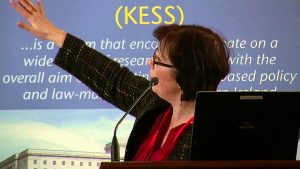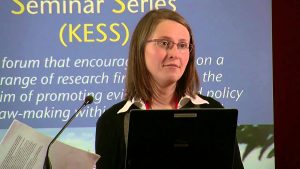
‘Lost generations’? Taking the longer view on Northern Ireland migration
Dr Johanne Devlin Trew (Ulster) Between 2004 and 2008, immigration to Northern Ireland rose to unprecedented numbers and the issue of how the newcomers could be accommodated here became a ‘struggle’ for local authorities and featured prominently in the local media. Since then, however, immigration has declined significantly to the point where by 2012, Northern Ireland net migration figures were once again in the negative (more people departing than arriving). In fact, apart from the recent short-term immigration anomaly, the predominant context for migration relating to Northern Ireland since 1921 has overwhelmingly been emigration; this largely driven by youth unemployment,
Poverty, ethnicity and international migrants to Northern Ireland: new opportunities or new vulnerabilities?
Dr Ruth McAreavey (QUB) During the past two decades a predominant pattern of emigration has been reversed in Northern Ireland, as it became a destination for many different migrants. There is evidence of Sudanese seeking refuge, Filipino nurses taking up employment opportunities and Polish workers shoring up meat processing industries. A rich mix of ethnic groups can therefore be found across Northern Ireland. This is not just confined to urban centres; rural and urban areas have been recipients of in-migrants. This presentation will provide a brief overview of recent patterns and processes of migration to Northern Ireland and the major

‘We asked for workers, but human beings came’: Mental health and well-being of Polish migrants in Northern Ireland
Dr Anne Kouvonen, Dr Justyna Bell and Dr Michael Donnelly (QUB) This presentation will discuss our research in mental health and well-being of Polish migrants – the largest ethnic minority in Northern Ireland (NI) (Census 2011). Our findings suggest that many Polish migrants are still in a process of adapting to NI society and there is recognition that returning to Poland is less likely now than they anticipated initially. Migration to NI for most Poles was due to a local demand for workers and high unemployment in Poland. As noted by Max Frisch- cited in the presentation title – migrants



